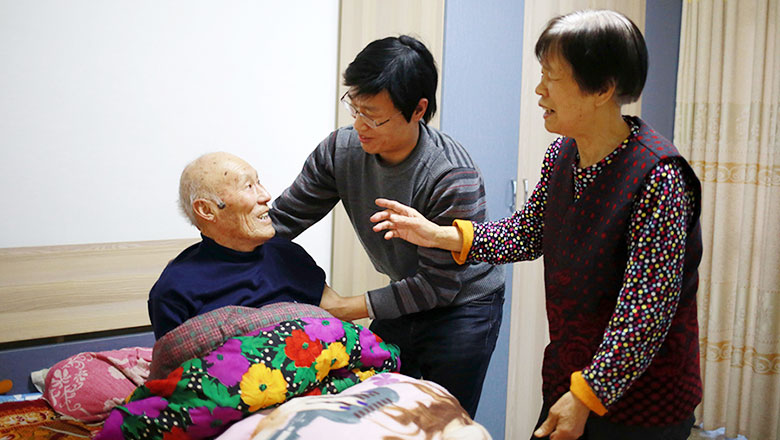422 million adults live with diabetes, UN health agency says
Updated: 2016-04-07 10:08
(Xinhua)
|
||||||||
"Many cases of diabetes can be prevented, and measures exist to detect and manage the condition, improving the odds that people with diabetes live long and healthy lives," said Oleg Chestnov, WHO's assistant director-general for NCDs and Mental Health.
"But change greatly depends on governments doing more, including by implementing global commitments to address diabetes and other (noncommunicable diseases)."
These include meeting Sustainable Development Goals (SDGs) target 3.4, which calls for reducing premature death from noncommunicable diseases (NCDs), including diabetes, by 30 percent by 2030.
Governments have also committed to achieving four time-bound national commitments set out in the 2014 UN General Assembly "Outcome Document on Noncommunicable Diseases," and attaining the nine global targets laid out in the WHO "Global Action Plan for the Prevention and Control of NCDs," which include halting the rise in diabetes and obesity.
"Around 100 years after the insulin hormone was discovered, the 'Global report on diabetes' shows that essential diabetes medicines and technologies, including insulin, needed for treatment are generally available in only one in three of the world's poorest countries," said Etienne Krug, director of WHO's Department for the Management of NCDs, Disability, Violence and Injury Prevention.
"Access to insulin is a matter of life or death for many people with diabetes. Improving access to insulin and NCD medicines in general should be a priority," Krug said.
World Health Day is a global health awareness day celebrated every year on April 7, under the sponsorship of WHO.
In 1948, the WHO held the First World Health Assembly which decided to celebrate April 7 of each year, with effect from 1950, as the World Health Day.
The World Health Day is held to mark WHO's founding, and is seen as an opportunity by the organization to draw worldwide attention to a subject of major importance to global health each year.
- More cities take bonus and penalty in air pollution
- Shanghai police release list of 36 drivers banned for Life
- Police relax rules impeding delivery drivers
- Official's photos an unusual attraction in Chinese village
- 438 Chinese police officers die on duty in 2015
- Chinese 'parachute kids' flock to US schools
- Xi: Talks 'only correct way' for China, ROK
- Xi to Obama: Disputes should be managed
- Cypriot court remands in custody man suspected of hijacking EgyptAir flight
- Govt eyes luxury tourists amid concerns over safety
- Sleep tight and don't let sharks bite at Paris aquarium
- Aung San Suu Kyi appointed as Myanmar's new foreign minister

 Top Chinese leaders attend voluntary tree-planting in Beijing
Top Chinese leaders attend voluntary tree-planting in Beijing
 Zhouzhuang water town viewed through artistic eyes
Zhouzhuang water town viewed through artistic eyes
 8 trends of major price movements gauging China's economy
8 trends of major price movements gauging China's economy
 Migrant workers back home with their family
Migrant workers back home with their family
 Microsoft embraces artificial intelligence
Microsoft embraces artificial intelligence
 Yao Ming introduced to Hall of Fame
Yao Ming introduced to Hall of Fame
 The world in photos: March 28 - April 3
The world in photos: March 28 - April 3
 Discover beautiful China in spring blossom (V)
Discover beautiful China in spring blossom (V)
Most Viewed
Editor's Picks

|

|

|

|

|

|
Today's Top News
Marriott unlikely to top Anbang offer for Starwood: Observers
Chinese biopharma debuts on Nasdaq
What ends Jeb Bush's White House hopes
Investigation for Nicolas's campaign
Will US-ASEAN meeting be good for region?
Accentuate the positive in Sino-US relations
Dangerous games on peninsula will have no winner
National Art Museum showing 400 puppets in new exhibition
US Weekly

|

|







